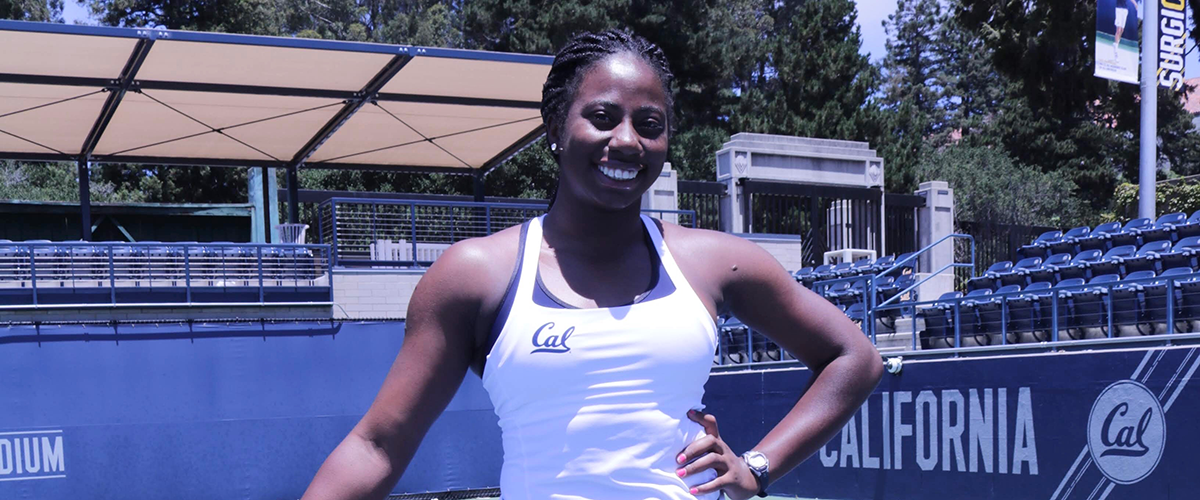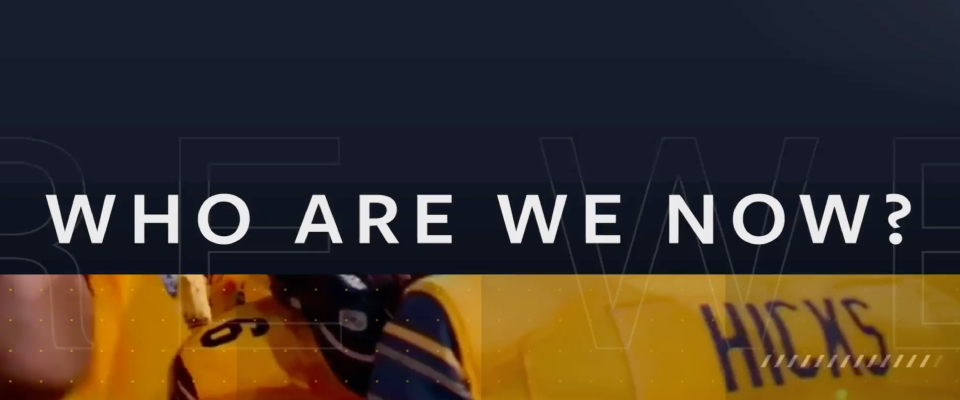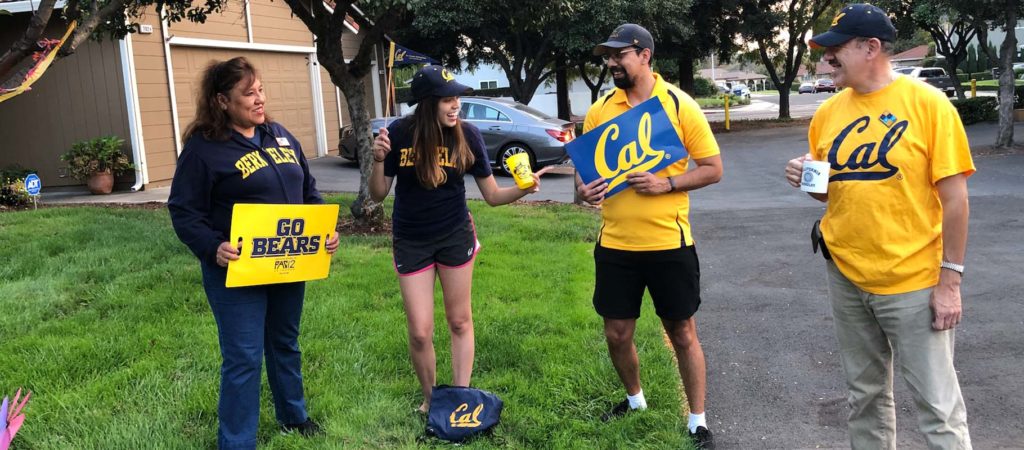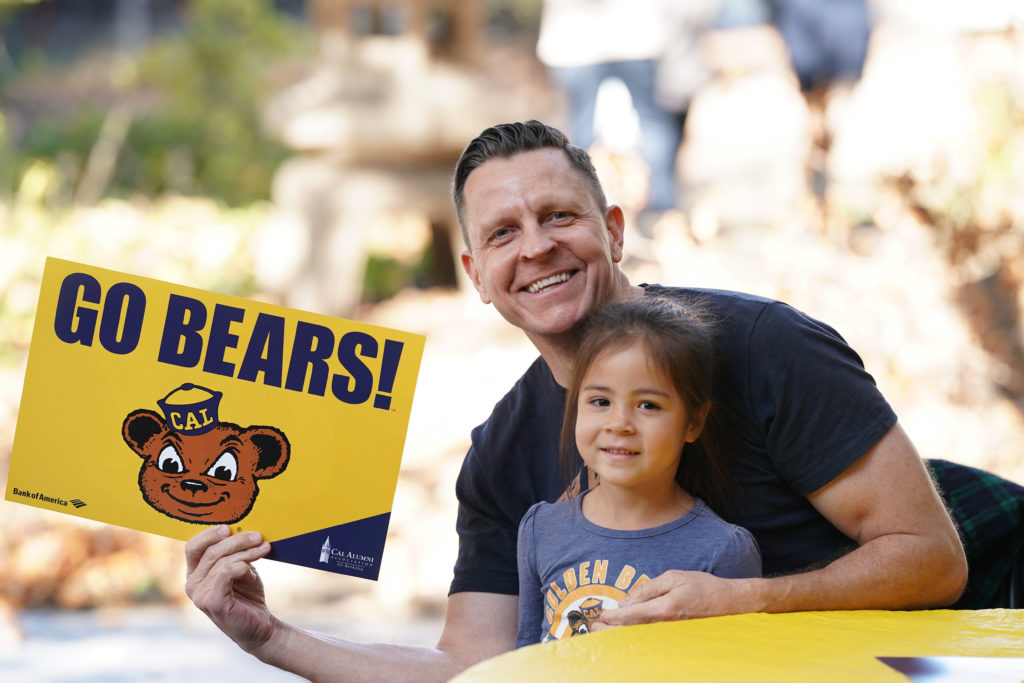During the early weeks of the COVID pandemic, many of us hoped the pandemic would quickly pass and we could resume our lives. But Maria Smith ’19 believed this is a time to take stock of things that matter to us. This thought led her to create Who Are We Now?, a series of conversations with Cal alums that challenge us to think about how the pandemic has changed us. The first episode was released in July, and we talked with Smith about the series. (Interview has been edited for length and clarity.)

Tell me how you got the idea for this project.
Maria Smith: So I really started reflecting a lot once the quarantine started. I noticed that the narrative everywhere was, ‘We’re in a pandemic. We’ve lost everything.’ The narrative was so focused on all the things that had been lost and when we would be able to gain those things back. I felt that that wasn’t the question that you should be asking yourself. I just thought the discussion needed to be around what matters most. Since the quarantine, I have talked to my family a lot more, I’ve reached out to friends, I took time to figure out how I can be more involved in my community. I volunteer for the African American Initiative Scholarship, for example. It was about pushing past [the] superficial and dwelling on how we can get back to ‘normal’.
It sounds like you believe this should be a hard reset.
MS: This pandemic was the first thing in my lifetime that altered everyone’s routines in such a major way. I just felt the routines that we had before, weren’t really routines. We’re making sure that all our ducks are in order. I want to figure out ways where I can touch someone’s life and inspire someone. That’s stuff that really gets me out of bed in the morning.
I just thought the discussion needed to be around what matters most.
You wanted to highlight Black student athletes. Why?
MS: In the mentorship group I’m in with [CAA Executive Director] Cloey Hewlett, we’re Black student athletes, and the conversations that we were having were really powerful, especially when the Black Lives Matter movement really picked up. It was just a very therapeutic discussion. I [created] Who Are We Now? before George Floyd was murdered, but once that happened, Cloey really pushed and said, ‘Hey this concept can be applicable to not only the pandemic, but really the Black Lives Matter movement.’
When we talk about the Black Lives Matter movement, I think a lot of people think of Colin Kaepernick and how athletes are often silenced when they protest.
MS: I’d start by saying that I think athletes have a great opportunity to be a voice for the causes they believe in. When LeBron talked about how he was more than an athlete, [and] someone said, ‘Just shut up and dribble,’ he fought back against that. Now, it’s really become an embraced thing that we are more than just athletes. Each of us felt that obligation to stand up and to express the truth about our experiences and how we felt about what was going on in the world.

What do you want people to get from these conversations? What’s your vision for this project?
MS: My vision is that these conversations stimulate deep personal reflection. I want people to hear the conversations we are having and feel inspired to do [and] learn more. They don’t even know because maybe they live in their bubble. They’re concerned about themselves and the day where that’s OK is gone. I want people to walk away from these conversations and feel in their heart that something needs to be done and that they actually make those steps. I want them to really start to notice that within themselves.
Who are you now? Who have you become?
MS: That’s the million dollar question, isn’t it? I truly believe that I’ve matured more in the last few months than maybe the last couple years. I’m now someone who has become more conscious of the issues in society. I’ve become more confident in speaking up about the issues that plague this country. I’ve become more dedicated to making that change. I believe that this project is something that’s powerful and I don’t know the number of people that are going to watch the videos, but I’m putting my heart into it and I believe that this is something that’s important. It’s, overall, been such a learning experience for me these last few months. I really found my voice in a way that I had not known before.
Above: In the first installment of the Who Are We Now? series, Isabella Marten ’18, Jordan Veasy ’18, and Elijah Hicks ’20 joined host Joe Spano ’67 to discuss what identity means to them as athletes amid the current pandemic and Black Lives Matter demonstrations.




















